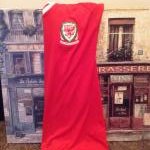“Since then, all appointments, staff and players, have fitted the long-term vision. Academy products are coming through and being sold for profit, player recruitment has been spot on and the fans are on board with the plan: sustainability through clever recruitment and a playing style that represents the town and its heritage.
“The owners have also been true to their word in making the fans’ experience better with a fan zone. OK, we do not see or hear from them that often but when you’re flying in the Championship, fans aren’t too bothered....
“And we’re getting lots of publicity. There’s a documentary coming out here next month about us (Kustboys: Make Oostende Great Again). It will be like Sunderland ‘Til I Die. So, it’s been the worst year for Belgian football since World War II but a good year for us.




 Reply With Quote
Reply With Quote





